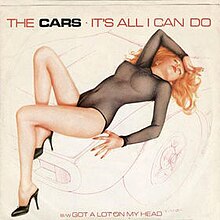
The Cars were an American rock band formed in Boston in 1976. Emerging from the new wave scene in the late 1970s, it consisted of Elliot Easton, Greg Hawkes (keyboards), Ric Ocasek, Benjamin Orr, and David Robinson (drums). Ocasek and Orr shared lead vocals, and Ocasek was the band's principal songwriter.
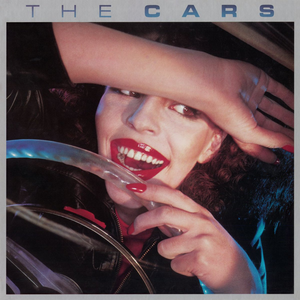
The Cars is the debut studio album by American rock band the Cars, released on June 6, 1978, by Elektra Records. Produced by Roy Thomas Baker, the album spawned the singles "Just What I Needed", "My Best Friend's Girl", and "Good Times Roll". It peaked at number 18 on the US Billboard 200 and has been certified six-times platinum by the Recording Industry Association of America (RIAA).

Candy-O is the second studio album by the American rock band the Cars. It was produced by Roy Thomas Baker and released in 1979 on Elektra Records. Two singles were released from the album, "Let's Go" and "It's All I Can Do" (#41). The album outperformed the band's debut, peaking at #3 on the US Billboard 200, fifteen spots higher. The cover art was done by pin-up artist Alberto Vargas.
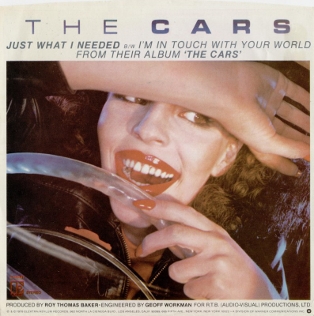
"Just What I Needed" is a song by American rock band The Cars from their self-titled debut album (1978). The song, which first achieved radio success as a demo, took inspiration from the Ohio Express and the Velvet Underground. The song is sung by bass player Benjamin Orr and was written by Ric Ocasek.
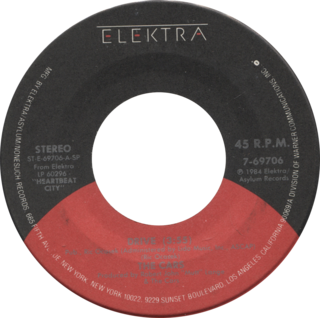
"Drive" is a song by American rock band the Cars from their fifth studio album, Heartbeat City (1984). It was released on July 23, 1984, as the album's third single. Written by Ric Ocasek, the track was sung by bassist Benjamin Orr and produced by Robert John "Mutt" Lange with the band. Upon its release, "Drive" became the Cars' highest-charting single in most territories. In the United States, it peaked at number three on the Billboard Hot 100 and topped the Adult Contemporary chart. It reached number five in the United Kingdom, number four in West Germany, number six in Canada and number three in Ireland.
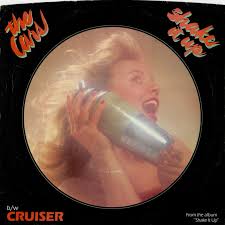
"Shake It Up" is a song by American rock band the Cars from their fourth studio album of the same name (1981). It was released on November 9, 1981, as the album's lead single. Although appearing for the first time in 1981, it was actually written years earlier by the band's songwriter and lead singer Ric Ocasek. The song became one of the Cars' most popular songs, peaking at number four on the Billboard Hot 100 and number two on the Billboard Top Tracks chart in early 1982. With the track "Cruiser" as its B-side, it reached number 14 on the Billboard Disco Top 80 chart.

"Let's Go" is a song by American rock band the Cars, written by Ric Ocasek for the band's second studio album, Candy-O (1979). A new wave rock song, the song's hook was inspired by the Routers. The song's vocals are performed by bassist Benjamin Orr.

Just What I Needed: The Cars Anthology is a two-disc, career-spanning compilation album of songs by the American new wave rock band the Cars. It features most of the band's singles, as well as many album tracks, non-album B-sides and unreleased songs.
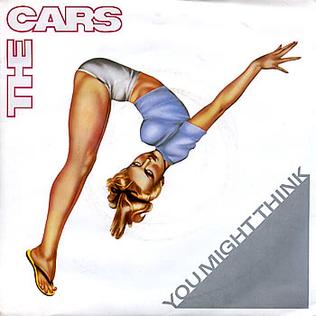
"You Might Think" is a song by American rock band the Cars from their fifth studio album, Heartbeat City (1984). The track was written by Ric Ocasek and produced by Mutt Lange and the Cars, with Ocasek also providing the lead vocals.

"Good Times Roll" is a song by American rock band The Cars released as the first track from their 1978 debut album The Cars. Written by Ric Ocasek as a sarcastic comment on rock's idea of good times, the song features layered harmonies courtesy of producer Roy Thomas Baker.
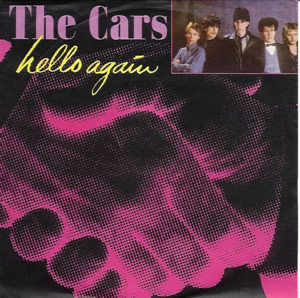
"Hello Again" is a song by American rock band the Cars from their fifth studio album, Heartbeat City (1984). It was released on October 15, 1984, as the album's fourth single. The song was the fourth top-20 entry from the album, reaching number 20 on the Billboard Hot 100 chart; it also reached number eight on the Hot Dance/Disco chart and number 22 on the Top Rock Tracks chart. Ric Ocasek sings lead vocals on the track.
"Dangerous Type" is a 1979 song by the Cars from their second studio album, Candy-O. It was written by Ric Ocasek.

"My Best Friend's Girl" is a song by American rock band the Cars from their 1978 self-titled debut album on Elektra Records, released on June 6 of that year. Written by Ocasek as a song about something that "probably ... happened to a lot of people," the track found radio success as a demo in 1977.

"Tonight She Comes" is a 1985 song by American rock band the Cars, from their Greatest Hits album. It was released as a single in October 1985, reaching number seven on the Billboard Hot 100 in January 1986. The song reached number one on the Top Rock Tracks chart, where it stayed for three weeks.

"You Are the Girl" is a 1987 song by the Cars, from their album Door to Door. It was released as a single in August 1987, reaching number 17 on the Billboard Hot 100. It also reached number 2 on the Mainstream Rock Tracks chart, and number 12 on the Adult Contemporary chart. It was the Cars' 13th and final Top 40 hit.
"Candy-O" is a song by the American rock band the Cars, the title track of their 1979 album Candy-O. It was written by Ric Ocasek, the song was not based on a real person. The song features a prominent guitar solo by Elliot Easton and lead vocals by bassist Benjamin Orr.
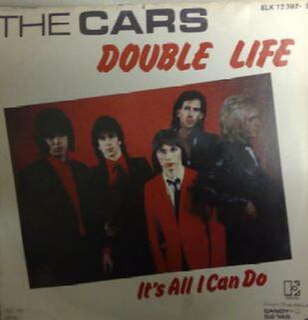
"Double Life" is a single by the American rock band the Cars from their second album Candy-O. Written by Ric Ocasek, the song was almost left off the album. The song was released as the third single from the album in 1979, but did not chart.

"I'm Not the One" is a song by the American rock band the Cars, from their fourth album, Shake It Up. It features Ric Ocasek on lead vocals, Benjamin Orr singing the 'You Know Why' phrase, with the whole group repeating "going round and round" as backing vocals throughout the song.

"Gimme Some Slack" is a song by the American rock band the Cars from the album Panorama. The song was written by bandleader Ric Ocasek.
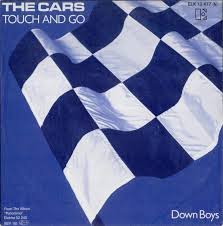
"Touch and Go" is a song by American rock band the Cars from their 1980 album Panorama. The song was written and sung by bandleader Ric Ocasek.
